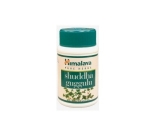Pharmaceuticals mentioned in the bible
The Bible is not only a religious text but also a source of valuable insights into ancient medicine and healing practices. Throughout its pages, there are mentions of various substances and remedies that were used in the ancient world for therapeutic purposes. These ancient remedies offer a fascinating glimpse into the understanding of health and healing in biblical times.
One of the most well-known biblical remedies is frankincense, which was highly valued for its medicinal properties. Frankincense, derived from the resin of the Boswellia tree, was used for its anti-inflammatory and analgesic effects. It was often burned as incense or used in balms to treat wounds and skin conditions. Additionally, myrrh, another resinous substance mentioned in the Bible, was used as an antiseptic and a pain reliever. Both frankincense and myrrh were also given as gifts to the baby Jesus according to the New Testament.
In addition to resins, the Bible also references various herbal remedies. For example, hyssop, a small plant with aromatic leaves, was used for its medicinal properties. Hyssop was often used as a cleansing agent and was mentioned in the Old Testament as a component of ceremonial rituals. Another plant mentioned in the Bible is mandrake, known for its sedative properties. Mandrake was believed to have aphrodisiac effects and was used to treat infertility and enhance fertility.
The use of oils was also prevalent in biblical times for therapeutic purposes. Olive oil, for example, was used as a base for various ointments and was believed to have healing properties. It was used to anoint the sick and was believed to bring about physical and spiritual healing. Other oils, such as cedarwood and myrtle, were also mentioned for their healing properties. These oils were often used in perfumes and ointments for their aromatic and medicinal effects.
Exploring the pharmaceuticals mentioned in the Bible provides us with a window into ancient healing practices and the use of natural remedies. These ancient remedies offer insights into the way illnesses and ailments were understood and treated in biblical times. By studying these practices, we can gain a deeper appreciation for the history of medicine and the development of modern pharmacology.
The Influence of Biblical Healing on Modern Medicine
The Bible, as one of the oldest texts in human history, has had a profound influence on various aspects of life, including medicine. Many healing practices and remedies mentioned in the Bible have guided the development of modern medicine, shaping the way we understand and approach health and healing.
Herbal Remedies: The Bible contains references to various plants and herbs that were used for medicinal purposes. For example, the book of Genesis mentions the use of myrrh and frankincense as healing agents. These ancient herbal remedies have been studied and their medicinal properties have been confirmed by modern science. Today, they are still used in some forms of alternative medicine and are even incorporated into modern pharmaceuticals.
Hygiene Practices: The Bible also contains guidelines on hygiene and cleanliness. For instance, the book of Leviticus outlines laws on cleanliness, including the importance of washing hands before preparing food. These principles have influenced modern medical practices, as hand hygiene is now recognized as a vital aspect of preventing the spread of diseases and infections.
Importance of Faith: The Bible emphasizes the importance of faith in healing. Numerous passages highlight the connection between spirituality and physical well-being. While modern medicine may focus more on scientific evidence and tangible treatments, the role of faith and spirituality in the healing process has not been entirely disregarded. Many medical studies today explore the connection between faith, mental health, and physical healing.
Compassionate Care: The healing practices and teachings of Jesus Christ in the New Testament emphasize the importance of compassion and care for the sick and suffering. This notion has played a significant role in shaping modern healthcare, where compassionate care is considered an essential aspect of effective treatment. The Bible's emphasis on treating others with kindness and empathy has influenced the development of patient-centered care models in modern medicine.
In conclusion,
the influence of biblical healing on modern medicine cannot be underestimated. From herbal remedies to hygiene practices, from the role of faith to compassionate care, the Bible continues to shape and guide the field of medicine. As we explore ancient remedies and healing practices mentioned in the Bible, we gain insights into the rich historical knowledge that laid the foundation for modern medical advancements.
Natural Remedies Mentioned in the Bible
The Bible contains references to various natural remedies that were used in ancient times for healing and well-being. These remedies were derived from plants, herbs, minerals, and other natural substances, and have been passed down through generations for their medicinal properties.
1. Frankincense and Myrrh: These aromatic resins were highly valued in biblical times for their healing and fragrant properties. Frankincense was used for its anti-inflammatory and antiseptic qualities, while myrrh was known for its wound-healing and pain-relieving properties.
2. Olive Oil: Olive oil was a staple in biblical times and was often used for various purposes including medicinal applications. It was believed to have healing properties and was used for anointing the sick, soothing skin ailments, and promoting overall well-being.
3. Honey: Honey, known for its antimicrobial and anti-inflammatory properties, was considered a natural remedy in biblical times. It was used for healing wounds, soothing sore throats, and as a general dietary supplement.
4. Aloe Vera: Aloe vera, with its soothing and healing properties, was also mentioned in the Bible as a natural remedy. It was used for treating various skin conditions, including burns and wounds.
5. Hyssop: Hyssop, a herb mentioned in the Bible, was often used for its cleansing and purifying properties. It was used in religious rituals as well as for medicinal purposes, such as treating respiratory issues and purifying water.
6. Fig Leaves: Fig leaves were mentioned in the Bible as a natural remedy for various ailments. They were used for treating skin conditions, promoting digestive health, and even providing clothing for Adam and Eve in the Garden of Eden.
7. Spikenard: Spikenard, an aromatic herb mentioned in the Bible, was highly valued for its soothing and relaxing properties. It was used as an anointing oil and perfume, and was believed to have healing effects on the mind and body.
8. Milk and Honey: The combination of milk and honey was considered a natural remedy in biblical times. It was believed to provide nourishment, promote healing, and enhance overall well-being.
These natural remedies mentioned in the Bible were not only used for physical healing, but also for spiritual and emotional well-being. They serve as a reminder of the rich history and wisdom of ancient healing practices. Today, many of these remedies are still used by traditional healers and natural medicine practitioners around the world.
The Use of Plants and Herbs for Healing
1. The Ancient Knowledge
Ancient civilizations, including those referenced in the Bible, possessed extensive knowledge of the healing properties of plants and herbs. They recognized that certain plants contained medicinal compounds that could be used to alleviate various ailments and promote overall health.
2. Medicinal Plants in the Bible
The Bible contains references to numerous plants and herbs that were used for healing purposes. For example, aloe vera was used for its soothing and anti-inflammatory properties, while frankincense and myrrh were used for their aromatic and healing properties. In addition, herbs such as garlic and hyssop were valued for their antibacterial and antiviral effects.
3. Traditional Remedies
Traditional healing practices often involved the use of plants and herbs. For instance, herbal teas were commonly used to treat digestive issues, promote relaxation, and boost the immune system. Poultices and ointments made from crushed plants or herbs were also used to treat skin conditions and wounds.
4. Modern Research and Validation
In recent years, scientific research has begun to validate the efficacy of certain plants and herbs that were traditionally used for healing. For example, studies have shown that turmeric, a spice used in ancient healing practices, contains anti-inflammatory and antioxidant properties. Similarly, chamomile has been found to have calming and sleep-inducing effects.
5. Integrating Ancient Wisdom with Modern Medicine
Today, many people are incorporating ancient remedies and traditional healing practices into their healthcare routines. They recognize that plants and herbs can be a valuable complement to modern medicine and offer a more holistic approach to healing. However, it is important to consult with healthcare professionals for proper guidance and to ensure the safe and effective use of plants and herbs for healing purposes.
The Role of Faith in Biblical Healing Practices
In the Bible, faith plays a significant role in healing practices. Many healing miracles are attributed to the power of faith and belief in God's ability to heal. Individuals who sought healing in biblical times often turned to their faith as a source of hope and strength.
Belief in divine intervention: A prevalent belief in biblical healing is that God has the power to intervene and bring about healing. Those seeking healing would often turn to God in prayer, believing that He would provide healing and relief from their afflictions. This faith in divine intervention was a driving force behind many healing practices in biblical times.
Trust and dependence on God: Biblical healing practices were centered around a deep trust in God's wisdom and plan. Individuals who sought healing recognized their dependence on God and acknowledged that He held the ultimate power over their health and well-being. This trust in God's sovereignty led them to approach healing with faith and unwavering belief in His ability to heal.
Active participation in faith-based practices: Individuals seeking healing in biblical times were often required to take active steps in expressing their faith. This could involve practices such as prayer, fasting, or seeking the guidance of spiritual leaders. These actions demonstrated a person's commitment to their faith and belief in God's healing power.
Hope and encouragement: Faith provided a source of hope and encouragement to those in need of healing. Belief in God's ability to heal offered a sense of comfort and reassurance, even in the face of seemingly insurmountable health challenges. This hope and encouragement fueled the perseverance and determination of individuals seeking healing.
Community support: The role of faith in healing practices extended beyond individual beliefs. The biblical community often played a crucial role in supporting and encouraging those seeking healing. They would come together in prayer, offering emotional and spiritual support to individuals in need. This communal support further reinforced the role of faith in biblical healing practices.
In conclusion, faith occupied a central role in biblical healing practices. Belief in divine intervention, trust in God's wisdom, active participation in faith-based practices, hope, and community support all contributed to the power of faith in the pursuit of healing. Overall, faith provided individuals with a source of strength, hope, and belief in God's ability to heal.
Understanding Ancient Pharmaceutical Techniques
In ancient times, pharmaceutical techniques were vastly different from what is used today. While modern medicine relies on synthetic drugs and advanced technology, ancient pharmaceutical practices were rooted in natural remedies and traditional healing methods. The study of these techniques provides valuable insights into the history of medicine and the development of pharmacology.
Herbal Medicine: One of the most prominent pharmaceutical techniques in ancient times was the use of herbal medicine. Ancient civilizations, such as
Exploring the Cultural and Historical Context of Biblical Remedies
When exploring the biblical remedies mentioned in the Bible, it is crucial to consider the cultural and historical context in which they were used. This context provides valuable insights into the beliefs, practices, and medical knowledge of ancient civilizations.
One key aspect of the cultural context is the strong influence of religion in ancient societies. Many remedies and healing practices mentioned in the Bible were deeply intertwined with religious beliefs and rituals. Healing was often seen as a divine act, and remedies were often accompanied by prayers, sacrifices, or other religious ceremonies.
Furthermore, understanding the historical context is essential in comprehending the availability and effectiveness of these remedies. Ancient societies had limited access to advanced medical technologies and relied heavily on natural resources for healing. Plants, herbs, and minerals were often used in the preparation of remedies, and their efficacy was based on empirical knowledge passed down through generations.
In addition, cultural and historical factors influenced the perception of health and illness in ancient times. Disease and ailments were often viewed as punishments or consequences of immoral actions or spiritual imbalance. Remedies aimed not only to alleviate physical symptoms but also to restore spiritual well-being and harmony.
To gain a comprehensive understanding of biblical remedies, it is important to delve into the cultural and historical background. This exploration sheds light on the intricate relationship between medicine, religion, and society in ancient times, offering valuable insights into the practices and beliefs that shaped these remedies.
Follow us on Twitter @Pharmaceuticals #Pharmacy
Subscribe on YouTube @PharmaceuticalsYouTube





Be the first to comment on "Pharmaceuticals mentioned in the bible"